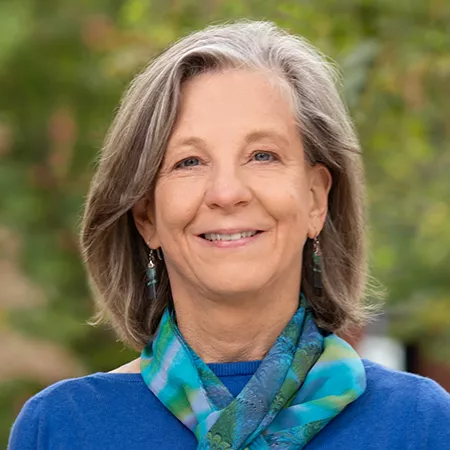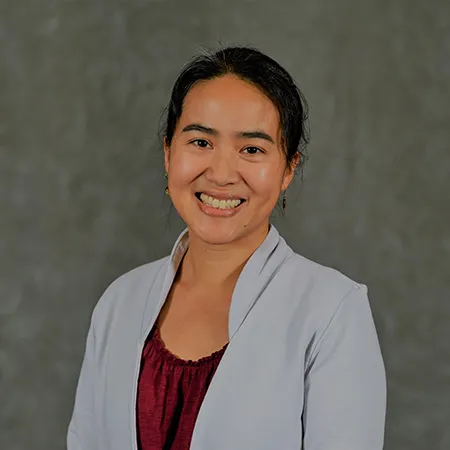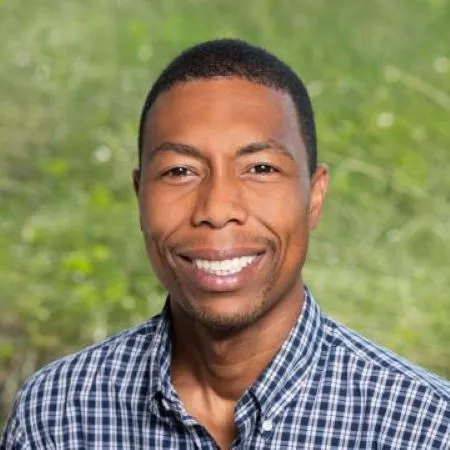This is the first of three short videos meant to be introductory tutorials on why environmental sustainability problems are inherently social problems; how teams can they study them; and what methods researchers use to study them. Part 1 in this series focuses on understanding environmental problems and sustainability through a socio-environmental lens. It provides multiple, specific examples of sustainability problems and how to conceptualize them within a socio-environmental framework.
Explaining how social drivers and responses are closely linked to environmental factors, these examples illustrate why solutions to sustainability problems require a focus on both the environmental and social factors. The end of the video briefly introduces the second video's subject—how groups can work together to synthesize social and environmental information to move toward solutions.
-
About the Presenters
Margaret A. Palmer
DirectorDr. Margaret A. Palmer is Director of SESYNC and a Distinguished University Professor at the University of Maryland, College Park. With a background in hydrology and ecology, Margaret contributes to testing and extending fundamental theory and empirical findings on aquatic ecosystem dynamics. She has worked extensively on the relationship between biodiversity and ecosystem processes, the biogeochemistry of streams and wetlands, and organism dispersal in aquatic ecosystems. She is an international expert on the restoration of streams and rivers and co-author of the book Foundations of...
Margaret A. Palmer
DirectorDr. Margaret A. Palmer is Director of SESYNC and a Distinguished University Professor at the University of Maryland, College Park. With a background in hydrology and ecology, Margaret contributes to testing and extending fundamental theory and empirical findings on aquatic ecosystem dynamics. She has worked extensively on the relationship between biodiversity and ecosystem processes, the biogeochemistry of streams and wetlands, and organism dispersal in aquatic ecosystems. She is an international expert on the restoration of streams and rivers and co-author of the book Foundations of Restoration Ecology. Margaret is also known for her work at the interface of water science and policy, having served as a technical advisor and innovator to help build solution-focused teams that solve problems with social, legal, policy and scientific aspects. She is extensively published (Google Scholar), has numerous awards, and remains actively engaged in science matters associated with national and local water policies and actions—particularly those associated with the Appalachians.
External Links:
https://scholar.google.com/citations?user=2nGk3QQAAAAJ&hl=enCynthia Wei
Associate Director of EducationDr. Cynthia Wei was the Associate Director of Education at SESYNC from 2016 to 2018 and previously the Assistant Director of Education and Outreach from 2012 to 2016. In this role, she led and managed educational programs including the SESYNC undergraduate research internship and the postdoctoral fellowship program (co-led), as well as initiatives to broaden participation with underrepresented minorities. She also created and taught an annual short course to advance the teaching of socio-environmental synthesis using the case study approach; this effort resulted in education-focused SESYNC...
Cynthia Wei
Associate Director of EducationDr. Cynthia Wei was the Associate Director of Education at SESYNC from 2016 to 2018 and previously the Assistant Director of Education and Outreach from 2012 to 2016. In this role, she led and managed educational programs including the SESYNC undergraduate research internship and the postdoctoral fellowship program (co-led), as well as initiatives to broaden participation with underrepresented minorities. She also created and taught an annual short course to advance the teaching of socio-environmental synthesis using the case study approach; this effort resulted in education-focused SESYNC workshops, multiple publications and presentations, and a virtual collection of open-access case studies on SESYNC’s website.
These efforts built on Cindy's past experience with national-level science education initiatives as an American Association for the Advancement of Science (AAAS) Science and Technology Policy Fellow at the National Science Foundation’s Division of Undergraduate Education, and as a Christine Mirzayan Fellow at the National Academy of Sciences. Her past scientific research involved animal cognition, having researched behavior and navigation in honeybees during her PhD and social cognition in corvids as a postdoctoral research associate.
Currently, Cindy is an Associate Professor of Teaching and Director of Science Education within the Science, Technology and International Affairs (STIA) program at Georgetown University’s Walsh School of Foreign Service (SFS). There, she leads the Science For All (SFA) program within the SFS and teaches several courses. She also has served as co-editor for the Ecology and Biodiversity section of the journal, Case Studies in the Environment. She holds a PhD in Ecology, Evolutionary Biology and Behavior, and Zoology from Michigan State University, and a BA in Biology (Neurobiology and Behavior) from Cornell University.
External Links:
https://gufaculty360.georgetown.edu/s/contact/0033600001kwDSvAAM/cynthia-wei
https://scholar.google.com/citations?user=_Nfjy9EAAAAJ&hl=en&oi=sraDavid Gill
Postdoctoral FellowDr. David Gill joined the faculty of Duke University in 2018. His research centers on coupled human-natural marine systems, focusing predominantly on marine management and tropical coral reef systems. Overall, his research aims to provide evidence-based insights into how marine management and conservation can lead to equitable and sustainable outcomes. This work is both interdisciplinary and collaborative by nature, drawing on key theories and analytical approaches from disciplines such as economics, community ecology, and political science, and it involves working alongside researchers and...
David Gill
Postdoctoral FellowDr. David Gill joined the faculty of Duke University in 2018. His research centers on coupled human-natural marine systems, focusing predominantly on marine management and tropical coral reef systems. Overall, his research aims to provide evidence-based insights into how marine management and conservation can lead to equitable and sustainable outcomes. This work is both interdisciplinary and collaborative by nature, drawing on key theories and analytical approaches from disciplines such as economics, community ecology, and political science, and it involves working alongside researchers and practitioners to co-develop salient research questions, approaches, and dissemination pathways. His recent work includes global and regional assessments of the social and ecological impacts of marine conservation, valuation of economic dependence on coral reefs, and the development of cost-effective approaches for monitoring socio-environmental systems in capacity-limited regions. David holds an MS and PhD from the Centre for Resource Management and Environmental Studies, University of the West Indies, Barbados. His post-graduate career included two years as a SESYNC and Luc Hoffmann Institute postdoctoral research fellow (2014-2016) and a David H. Smith Conservation Research Fellowship (2016-2018) based at George Mason University and Conservation International. At SESYNC, David was affiliated with the team project Solving the Mystery of Marine Protected Area (MPA) Performance, which brought together an interdisciplinary team of researchers and data from MPAs from around the world to identify key trends between MPAs and their social and ecological impacts. This work, spearheaded by the World Wildlife Fund, aimed to inform marine conservation policy and to strengthen a culture of evaluation in the conservation sector.
External Links:
https://nicholas.duke.edu/people/faculty/gill
https://scholar.google.com/citations?user=1A5tDigAAAAJ&hl=en


